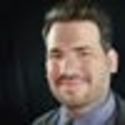-
About
- About Listly
- Community & Support
- Howto
- Chrome Extension
- Bookmarklet
- WordPress Plugin
- Listly Premium
- Privacy
- Terms
- DMCA Copyright
- © 2010-2024 Boomy Labs

 jason-epperson
jason-epperson
Listly by jason-epperson

The mother of improvisational theater, Viola Spolin is the originator of Theater Games—the basis of the artform. Along with her son, Paul Sills, Spolin created the techniques utilized by every improvisational comedy troupe ever. Her work has influenced acting (and directing) technique for theater, film and television every bit as much as Konstantin Stanislavsky or Sanford Meisner.

Working until the day he died at age 79, Sheldon Patinkin was truly a giant of Chicago theater and comedy. An original member of Playwrights Theatre Club (which spawned The Compass Players and The Second City), his career spanned well over 50 years in Chicago. For The Second City, Patinkin was the Artistic Director throughout most of the '60s. His relationship with the institution would last the remainder of his life. He helped launch SCTV in Toronto as a writer and producer, and mentored countless American comedy legends. Patinkin essentially created the Columbia College Chicago Theater Department, one of the largest programs in the world. During his 29 year tenure as Department Chair, he mentored thousands of students, particularly in the directing program, where his proteges included Anna D. Shapiro and David Cromer. Sheldon also had a long-standing relationship with Steppenwolf, where he was an artistic associate, director, and teacher.

The most famous of Chicago-bred playwrights, David Mamet won a Pulitzer Prize in 1984 for GLENGARRY GLEN ROSS. His other famous works include SPEED-THE-PLOW, THE DUCK VARIATIONS, SEXUAL PERVERSITY IN CHICAGO, OLEANNA, and AMERICAN BUFFALO. A prolific screenwriter, Mamet has received Oscar nominations for The Verdict (1982) and Wag the Dog (1997).
AMERICAN BUFFALO was at the center of Chicago theater's massive growth spurt in 1975.
